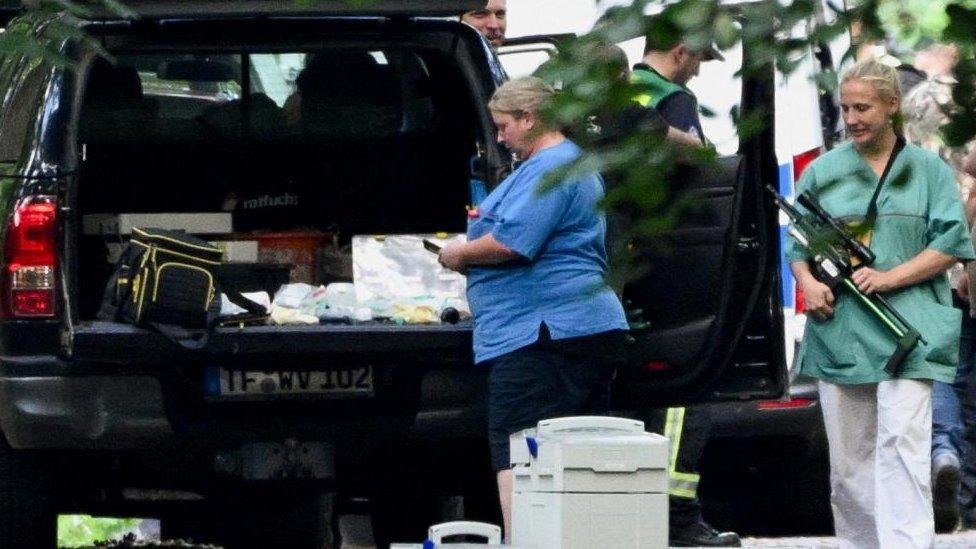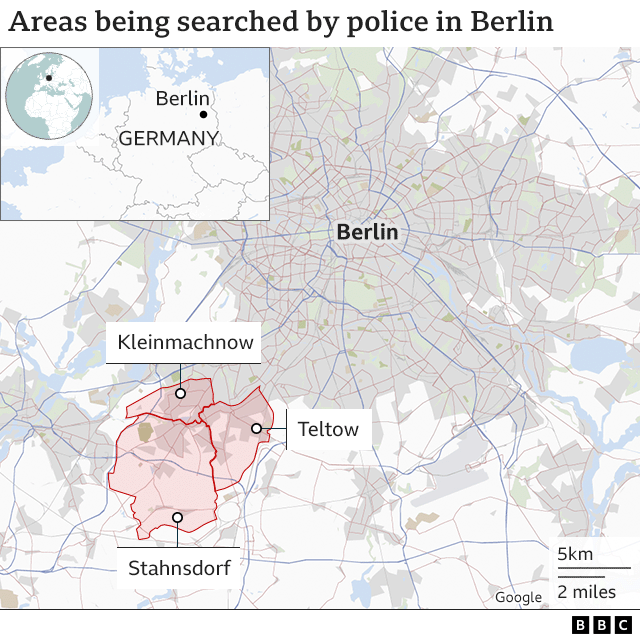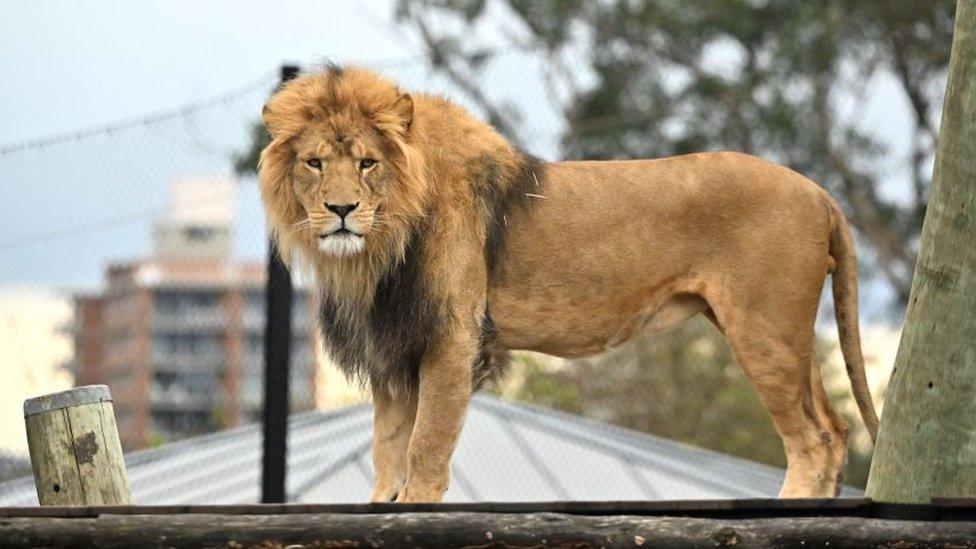Berlin search for suspected lioness continues as night falls
- Published

People searching for the suspected lioness carried tranquiliser guns
Police are searching for an animal they believe is a lioness in the south-western outskirts of Berlin.
A police spokeswoman said they received calls and a video alerting them to the wild animal at about midnight on Wednesday, and immediately began their search.
At least 30 police cars were deployed, and veterinarians were called to assist in the search for the big cat.
Residents were told to stay indoors until it is found.
On Thursday evening, police told a local resident that they had "just seen" the lioness and that the search for the animal had entered a "hot phase", German outlet Bild reported, adding that officers shouted at joggers to "get out of the woods quickly".
However, the animal remained elusive after nightfall on Thursday as police hunted with night vision and thermal imaging equipment.
While the number of officers has been reduced, Beate Ostertag of Berlin police told public broadcaster RBB that police would "be in action until the animal is found".
Kleinmachnow Mayor Michael Grubert earlier said authorities had not been able to verify the initial reports of the animal sighting, external.
A video shared on Twitter - which police believe is real - also appeared to show a lioness in a heavily forested residential area of Kleinmachnow.
However, it is unclear where the animal came from. Local zoos, animal sanctuaries and circuses said no lions have escaped from their facilities.

Police spokesperson Daniel Keip told RBB that "in the summer you often hear reports of crocodiles in swimming lakes and then it turns out all it was, was a big duck. In this case it's obviously totally real. We're dealing with a lioness that's roaming freely through Teltow, Stahnsdorf and Kleinmachnow."
But Michel Rogall, a circus director in Teltow who was woken by police at 02:00 local time, is not so sure.
"If it's a lion, I'll eat my hat," he told the Tagesspiegel newspaper. In addition, he told Reuters that there was no circus with wild animals on the road in eastern Germany, "and they wouldn't escape either [if there was]".
Residents have been advised to stay indoors and keep their pets with them. Police have also told people to avoid the forest and seek shelter immediately if they see the lioness.
Mr Grubert said authorities were focusing their search on a large area next to a wood where people walk their dogs. Authorities believe the lioness may be sleeping there.
He added that there was "no panic, no hysteria... but we do urge people not to go running or cycling in the woods".
"Our hunters... are also equipped with ammunition," he said. "The first objective is to capture. Other measures will only be taken by police officers if their lives or the lives of others are endangered."
Helicopters have been deployed to find the elusive animal as well as drones and heat-seeking cameras, Mr Grubert said.
Veterinarians and hunters with tranquiliser guns are also involved in the search, while local media reported that police were using an armoured vehicle normally deployed in anti-terrorism operations.
Florian Eiserlo of the Four Paws animal welfare organisation told the Rheinische Post newspaper that if anyone runs into the animal, they should not panic.
"Stand still, stay calm, try to head to a safe area such as a car or a building," they said.
Berlin's local press is also full of tips on what to do if one does run into a lioness - which includes not running or panicking, and slowly backing away from it.
Vanessa Amoroso, head of the wild animals in trade unit at Four Paws, said if the animal was a lioness, it is likely to have been kept as a pet.
She said inconsistent laws across Europe made the trade of big cats much easier, as they are allowed as pets in many countries.
Ms Amoroso called on the German government to regulate those trading and keeping exotic animals.
"Germany's position as one of the world's largest markets for wild animals as pets demands effective measures to counteract the ease with which potential buyers can acquire animals through online platforms and exchanges," she added.
- Published2 November 2022
